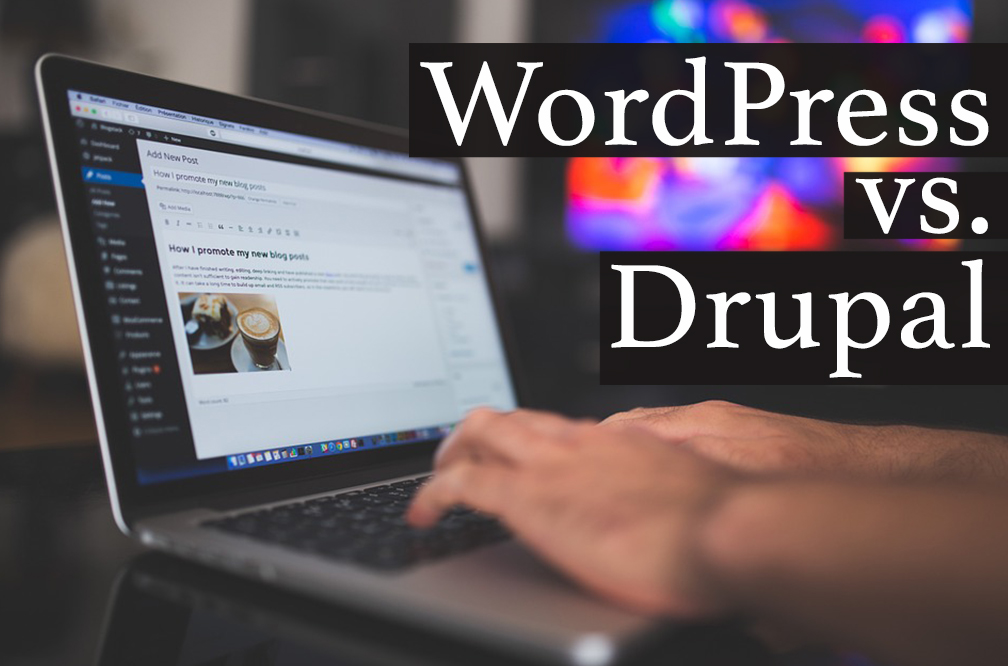
Drupal was released in 2001, and it’s younger sibling WordPress came onto the scene in 2003. Since that time the rivalry between the two CMS options has been fierce. So which one is ultimately the best choice? We’d love to give you one simple answer, but there isn’t one: this is how it breaks down based on the needs you have for your CMS.
Issue: User friendliness
WordPress is so easy for almost anyone to use, and it’s easy to learn, too, even if you can’t code at all. If you can code a little, and know just basic CSS and HTML, you can crack open the WP plugin library, which is massive—featuring hundreds of thousands of plugins—and customize your site and add features simply. Either way you can add themes, and the interface makes the whole process quick for just about anyone.
On this issue, WordPress wins.
Issue: Multiple users
If you need many different users contributing content to your site, WordPress is the clear winner. Accommodating multiple authors has always been part of the WordPress design.
Winner: WordPress
Issue: SEO
Both Drupal and WordPress are designed to produce SEO friendly sites. On the technical points there are few differences. However, it is worth noting that modern SEO is becoming more and more centered on content, and for that reason Drupal may have an edge if you’re really aiming for Page 1.
On this issue, basically a tie, with the note that you should refer to the next point.
Issue: Lots of content
For large commerce sites or sites with huge amounts of content, Drupal comes out as the clear winner. Drupal easily manages hundreds of thousands of content pages and offers both strong access control list and version control capabilities. In other words, while the WordPress backend is compact and designed for bloggers, the Drupal backend is made to handle the scale that large businesses and content producers need with stability.
Winner: Drupal
Issue: Security
Anytime you have millions of installations of your software, hacking threats are a bigger problem, just based on the numbers. That’s why there are so many third-party security plugins for WordPress, and although they do cost money, you should invest in them if you want to keep your WordPress site secure. Still updates might break your plugins or just not work with them, but you need your updates or you’re even more vulnerable; the end result is a need to update plugins routinely as well.
Winner: Slight advantage Drupal for sites with serious security needs such as financial data, WordPress with plugins for average users without sensitive information on their site
Issue: Developer-friendly
Drupal is far more developer-friendly—but only for people who are actually skilled developers and have a solid background or education in web design. If you lack skills as a developer, you may need the simplicity of the WordPress interface. However, if sheer possibilities in the hands of a talented developer are on the table, Drupal is the better choice.
Advantage: Drupal
Issue: Cost
Even if you pay for extra WordPress plugins, it’s a lot cheaper than Drupal in a few key ways. Drupal offers no free “modules,” their version of plugins. The reason you use Drupal in the first place is to take advantage of their awesome modules, and to do that you pay for each one. Drupal also doesn’t include themes, so you either need a developer or have to be one yourself. Furthermore, unless you already know it inside and out, you’ll need to account for the time expense of your learning curve, because Drupal is not easy to master.
Winner: WordPress

Issue: Design-friendly
WordPress can help you create very pretty websites, but original designs that are very heavy on user-experience or data heavy, not so much. Drupal has superior design features, especially if you have specific design visions in mind.
Advantage: Drupal
Issue: Flexibility
WordPress has the flexibility to allow you to create a wide variety of websites—so long as they do not become overly complex or huge. Drupal technically has more flexibility in terms of allowing you to develop anything from a very small site to a massive ecommerce site. In the end, this one is a very close call, because “flexibility” is very subjective.
Our call: We give a slight advantage to Drupal, while acknowledging that most users won’t need the flexibility that it offers.
The bottom line
Obviously, only you know which of these issues matter most to you. If you have lots of skill as a developer and designer, the complexity of Drupal isn’t an issue for you. This means the only real roadblocks that might prevent you from using it would be cost. On the other hand, if you are a novice when it comes to developing sites and investing the time and energy into learning a system like Drupal is just one cost on the list, WordPress will come out a clear winner for you. There’s no question that with the right effort and planning, you can create beautiful, functional sites using either CMS for yourself or clients—just choose the right tool for the job.